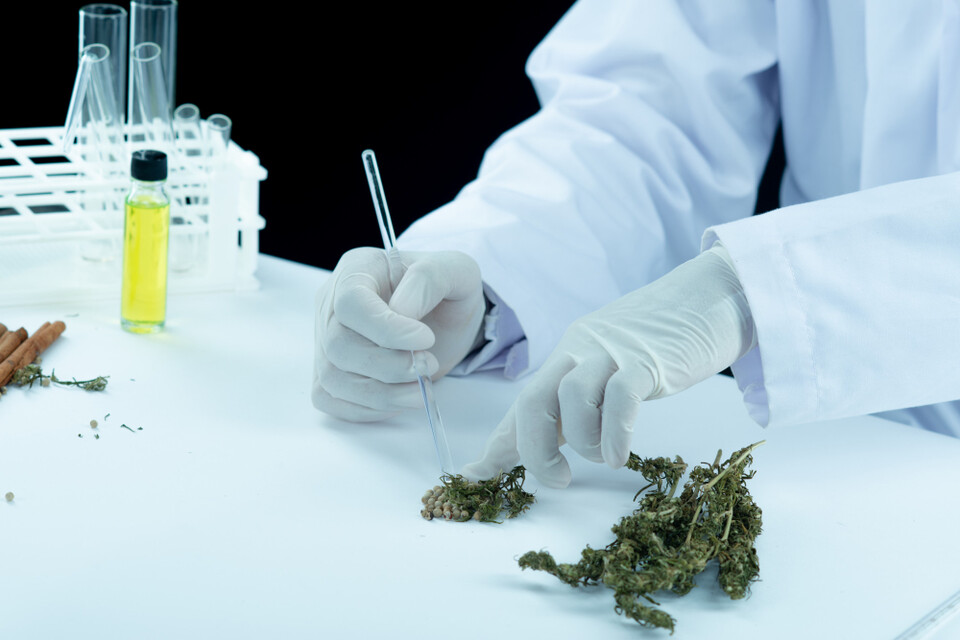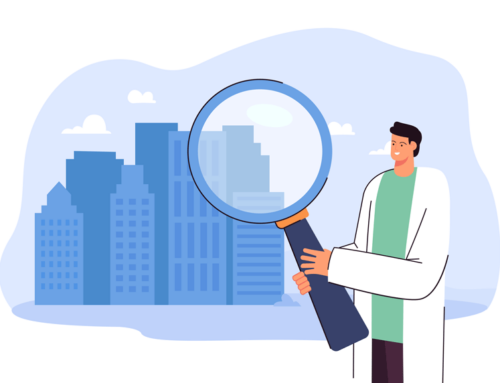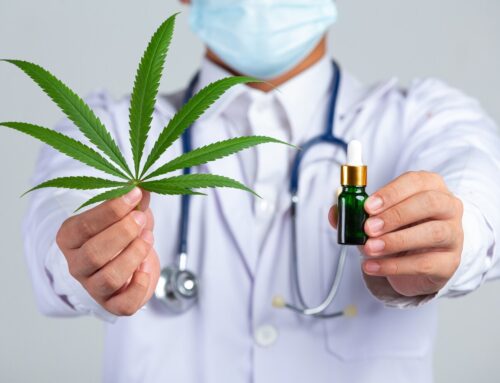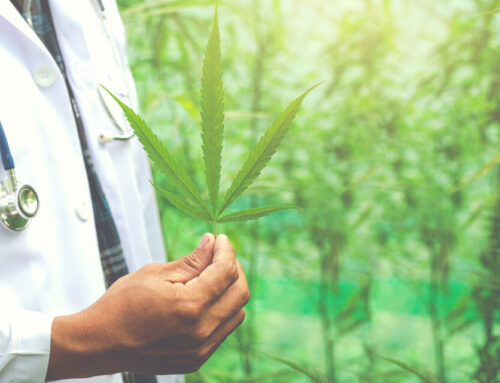Can Medical Marijuana Help With ADHD? Benefits Vs. Risks
Medical marijuana for ADHD has been discussed for many years, especially its potential benefits for various health conditions. One such condition that has garnered attention is Attention Deficit Hyperactivity Disorder (ADHD). In this guide, we will delve deep into the relationship between medical marijuana and ADHD, focusing on the latest research, benefits, and how residents of New York can access this alternative treatment option. Let’s get started!
Table of Contents
- Key Takeaways
- What is ADHD?
- Medical Marijuana: An Overview
- Accessing Medical Marijuana in New York
- Frequently Asked Questions
- Conclusion
Key Takeaways
✔ ADHD is a neurodevelopmental disorder characterized by inattention, hyperactivity, and impulsivity. It affects both children and adults, influencing various aspects of their daily lives.
✔ The disorder’s origins are multifaceted, with genetics, brain injuries, environmental factors, and premature birth all playing potential roles in its development.
✔ Diagnosing ADHD comprehensively involves behavioral assessments, medical examinations, clinical interviews, and a medical history review.
✔ Medical marijuana, derived from the cannabis plant, contains cannabinoids that interact with the body’s endocannabinoid system, offering potential therapeutic benefits.
✔ The two primary cannabinoids are THC, which is psychoactive, and CBD, known for its therapeutic properties without causing a “high.”
✔ Some ADHD patients report improved concentration, mood regulation, reduced hyperactivity, and better sleep patterns after using medical marijuana in New York.
✔ New York has a structured program allowing eligible patients to access medical marijuana legally and safely.
✔ Patients in New York need a qualifying medical condition, a recommendation from a registered healthcare provider, and a medical marijuana card to access cannabis products.
✔ EZMEDCARD offers guidance throughout accessing medical marijuana in New York, from understanding eligibility to obtaining a recommendation.
✔ While medical marijuana offers potential benefits, it’s essential to consult with healthcare professionals, adhere to recommended dosages, and be aware of state-specific regulations and restrictions.
What is ADHD?
Attention Deficit Hyperactivity Disorder (ADHD) is a complex neurodevelopmental disorder that manifests in various ways and can significantly influence an individual’s behavior, emotions, and cognitive abilities. A range of symptoms marks this disorder, the most prominent being inattention, hyperactivity, and impulsivity. These symptoms can vary in intensity and may evolve over time.
While ADHD is often diagnosed in childhood, it is not just a disorder. Many adults continue to experience ADHD symptoms; some may not even realize they have the condition until later. The effects of ADHD can permeate various aspects of an individual’s life. For children, it might mean struggling to keep up with schoolwork, facing challenges in making friends, or being labeled “disruptive.” Adults with ADHD might struggle to manage time, stay organized, maintain jobs, or nurture personal relationships.
Causes of ADHD
The exact origins of ADHD are still a subject of ongoing research, and multiple factors likely contribute to its development. Some of the potential causes or contributing factors include:
Genetics
ADHD has a strong genetic component, as evidenced by numerous family studies. When a parent or sibling is diagnosed with ADHD, the probability increases that another family member might also have the disorder. This genetic link suggests that certain genes associated with ADHD can be passed down through generations, making some families more susceptible.
Brain Injuries
Injuries to the brain, particularly traumatic ones, can sometimes manifest symptoms similar to ADHD. The frontal lobe, a critical region responsible for decision-making, impulse control, and regulating emotions, is especially relevant. When this area is affected by trauma, behaviors and cognitive functions resembling ADHD can emerge, even if the individual didn’t previously exhibit such symptoms.
Environmental Factors
Various environmental factors during crucial developmental stages can elevate the risk of ADHD. Exposure to specific toxins or infections can adversely affect brain development. Moreover, behaviors like maternal smoking, consumption of alcohol, or drug use during pregnancy have been linked to an increased likelihood of ADHD in offspring, highlighting the importance of a healthy prenatal environment.
Premature Birth
Being born before the full term can come with several health challenges, including a heightened risk for ADHD. Premature babies often face developmental hurdles, and their brains might not have had the same growth opportunities as full-term infants. This early birth and the associated developmental challenges can contribute to a higher prevalence of ADHD symptoms as the child grows.
Diagnosis of ADHD

Diagnosing ADHD is a meticulous process and isn’t based on any single test. Instead, it requires a comprehensive evaluation. Here’s what the diagnostic process typically involves:
Behavioral Assessment
Understanding an individual’s behavior across various settings is crucial in diagnosing ADHD. A behavioral assessment collects comprehensive data about how a person acts and responds in different environments, whether at home, school, or the workplace. To get a holistic view, feedback is often sought from those who interact with the individual regularly, such as teachers, parents, or colleagues. This multifaceted approach ensures that the assessment captures the breadth of the individual’s behaviors.
Medical Examination
Before concluding that someone has ADHD, it’s essential to rule out other medical conditions that might mimic its symptoms. A comprehensive medical examination is undertaken for this purpose. This examination can encompass a range of tests, from vision and hearing assessments to more specialized neurological evaluations. The goal is to ensure that the symptoms aren’t arising from another underlying medical issue.
Clinical Interview
A clinical interview is a cornerstone of the ADHD diagnostic process. Conducted by a healthcare professional, this in-depth conversation delves into the nuances of the individual’s symptoms. The interview explores the onset, duration, severity, and overall impact of the symptoms on daily life. In some cases, family members might also be involved in the discussion to provide additional insights.
Review of Medical History
An individual’s past medical records can offer invaluable insights into their current health status. By reviewing these records, healthcare professionals can identify previous diagnoses, treatments, or other relevant health events. This review might highlight past mental health disorders or other conditions that could influence the present symptoms. A thorough understanding of medical history ensures the diagnosis is well-informed and accurate.
Medical Marijuana: An Overview
Medical marijuana, often hailed as a versatile therapeutic agent, is derived from the cannabis plant. It’s not just about the recreational “high” that many associate with marijuana; when used medicinally, it taps into a complex system in our bodies to potentially provide relief from various ailments.

Understanding the Basics
At its core, medical marijuana contains compounds known as cannabinoids. These naturally occurring chemicals can influence the endocannabinoid system within our bodies. This system, comprising receptors and neurotransmitters, plays a pivotal role in regulating mood, pain, appetite, memory, and more. By interacting with this system, cannabinoids can offer therapeutic benefits for many conditions, ranging from chronic pain to epilepsy.
Delving into Components and Strains
Cannabis is a complex plant with over a hundred identified cannabinoids, but two of them stand out in terms of their effects and therapeutic potential:
- THC (Tetrahydrocannabinol): This is the primary psychoactive component in marijuana. It’s responsible for the euphoric sensation or the “high” that recreational users seek. Beyond its psychoactive effects, THC has shown potential in managing pain, insomnia, and appetite issues.
- CBD (Cannabidiol): Unlike THC, CBD doesn’t produce a “high.” Instead, it’s garnered attention for its potential therapeutic properties, especially its anti-inflammatory, anti-anxiety, and antipsychotic effects. It’s being studied extensively for conditions like epilepsy, anxiety, and certain cancers.
Medical Marijuana and ADHD: Potential Benefits
The potential of medical marijuana in treating ADHD symptoms has become a topic of interest in the medical community and those affected by the disorder. While research is still in its nascent stages, several anecdotal accounts and initial studies hint at its potential benefits:
Enhanced Concentration
Medical marijuana has shown the potential to aid concentration for some individuals with ADHD. Numerous patients have reported a noticeable improvement in their focus after its use. This enhanced attention span can be crucial for tasks that require sustained concentration. While results vary, there’s growing interest in how cannabis can support cognitive functions.
Mood Regulation
Fluctuating moods and anxiety can be challenging for those with ADHD. Interestingly, specific strains of cannabis have calming properties that may help stabilize mood. By potentially reducing anxiety and mood swings, medical marijuana can offer a more balanced emotional state. It’s essential, however, to choose the right strain to achieve these effects.
Reduced Hyperactivity
Hyperactivity is a hallmark symptom of ADHD, often leading to restlessness and impulsive actions. Some individuals using medical marijuana have observed a reduction in these hyperactive behaviors. The calming effects of certain cannabis compounds might help in moderating excessive energy and impulsivity. This can be especially beneficial in settings that demand calmness and patience.
Improved Sleep Patterns
Sleep disturbances, including insomnia, are frequently reported by those with ADHD. The good news is that certain cannabis strains have properties that can promote relaxation and better sleep quality. By aiding in sleep onset and reducing nighttime awakenings, medical marijuana can potentially offer a more restful night. Consistent sleep patterns can significantly impact overall well-being and daily functioning.
However, it’s paramount to remember that the effects of medical marijuana can vary from person to person. Before considering it as a treatment option for ADHD or any other condition, it’s crucial to have a detailed discussion with a healthcare professional. They can guide potential benefits, risks, and the right approach to its use.
Accessing Medical Marijuana in New York
In recent years, New York has joined the growing list of states recognizing the potential therapeutic benefits of medical marijuana in New York. The state has established a structured program to ensure eligible patients can access cannabis safely and legally.
Eligibility Criteria
To be considered for medical marijuana use in New York, there are specific criteria that patients must meet:
Qualifying Medical Condition
The state lists medical conditions that qualify for medical marijuana use. This list includes chronic pain, epilepsy, cancer, and more. It’s essential to check the most recent list, as it can be updated based on new research and findings.
Recommendation from a Healthcare Provider
Before accessing medical marijuana in New York, patients need a recommendation from a healthcare provider registered with the New York State Medical Marijuana Program. This recommendation confirms that the patient has one of the qualifying conditions and that the provider believes medical marijuana could be beneficial.
The Application Process
Once a patient has a recommendation, the next step is to apply for a medical marijuana card:
Application Submission
Patients must apply to the New York State Department of Health’s Medical Marijuana Program. This application will include details about their medical condition, the recommendation from the healthcare provider, and other relevant documentation.
Approval
If the application is approved, the patient will receive a medical marijuana card, granting them legal access to purchase and use medical marijuana in New York.
Purchasing Medical Marijuana
With a valid medical marijuana card:
Is it Licensed Dispensaries?
Patients can visit state-licensed dispensaries to purchase medical marijuana products. These dispensaries offer a range of products, from oils and tinctures to vaporizers and capsules.
Dosage and Usage
It’s crucial to follow the recommended dosage and use guidelines the healthcare provider provides. Overconsumption or misuse can lead to unwanted side effects.
Will ADHD Symptoms Improve with Marijuana Use?
Frequently Asked Questions
This FAQ section addresses some of the most common questions we receive. Whether you’re curious about the details or just getting started, this section is here to shed light and provide the information you need.
Is medical marijuana legal in New York?
Indeed, New York has legalized medical marijuana for therapeutic use. The state has established a structured program to regulate its distribution and use. Patients with specific medical conditions, including ADHD, are eligible. However, they must meet certain criteria and obtain a medical marijuana card. This ensures that only those with genuine medical needs can access cannabis products.
Are there any side effects of using medical marijuana for ADHD?
Just like other medications, medical marijuana isn’t without potential side effects. Some users might experience dizziness, dry mouth, or changes in appetite. In some cases, heightened anxiety or mood changes can occur. Patients must discuss this with a healthcare professional before starting treatment. This ensures a clear understanding of both the potential risks and therapeutic benefits.
How do I find a registered healthcare provider for medical marijuana in New York?
Not all healthcare providers can recommend medical marijuana in New York. Only those registered with the state’s Medical Marijuana Program can issue such recommendations. Patients can check the New York State Department of Health’s website or consult platforms like EZMEDCARD for a list of registered providers. Choosing a provider familiar with your medical history and specific needs is essential. Regular follow-ups with the provider can also help adjust dosages or address any concerns.
Can I grow my cannabis plants for medical use in New York?
Currently, New York does not permit patients or caregivers to cultivate their cannabis plants for medical use. All medical marijuana products must be purchased from state-licensed dispensaries. These dispensaries ensure that the products meet specific quality and safety standards. It’s essential to be aware of and adhere to these regulations to avoid legal complications. Always purchase and consume medical marijuana responsibly.
Are there restrictions on where I can consume medical marijuana in New York?
Yes, there are specific guidelines on where medical marijuana can be consumed in New York. Smoking or vaping medical marijuana is prohibited anywhere tobacco smoking is prohibited. This includes schools, workplaces, and public transportation. Additionally, operating a vehicle under the influence of marijuana is illegal and can lead to severe penalties. It’s always best to consume medical marijuana in the privacy of your home or another safe environment, ensuring you’re not violating any state regulations.
What forms of medical marijuana are available for ADHD patients?
Different forms of medical marijuana are available, catering to patients’ varied preferences and needs. These can range from traditional dried cannabis flowers for smoking or vaping to edibles, tinctures, and topical creams. The best form often depends on the patient’s comfort level, the desired effect, and the healthcare provider’s recommendation.
How long does it take to see the effects of medical marijuana on ADHD symptoms?
The onset of effects from medical marijuana can vary based on the consumption method and individual factors. For instance, inhaled cannabis (through smoking or vaping) typically offers immediate effects, while edibles might take longer, sometimes up to two hours. It’s essential to start with a low dose and monitor the effects before adjusting the dosage, especially when using medical marijuana for ADHD symptoms.
Are there age restrictions for using medical marijuana for ADHD?
Yes, age restrictions apply to medical marijuana use, and they can vary by state or country. In many places, medical marijuana is primarily prescribed to adults over 18 or 21. However, in specific cases where severe symptoms are present, minors with ADHD might be granted access under the guidance of a healthcare professional and with parental consent. Always check local regulations and consult a medical professional before considering medical marijuana for younger individuals.
Ready to Explore Medical Marijuana for ADHD in New York?
Navigating the world of medical marijuana can be overwhelming, especially when you’re seeking relief for conditions like ADHD. But you don’t have to do it alone. EZMEDCARD is here to guide you every step of the way. From understanding eligibility criteria to connecting with registered healthcare providers and ensuring you meet all state requirements, EZMEDCARD simplifies the process for New York residents. Don’t wait any longer; Contact us and take control of your health and well-being today.
FAQ
1. Benefits of Marijuana for ADHD:
There's currently limited and inconclusive research on the benefits of marijuana for ADHD. While some people report that marijuana helps them focus or manage symptoms like hyperactivity, studies haven't provided definitive evidence. In fact, some studies suggest marijuana use might even worsen certain aspects of ADHD. It's important to consult with a healthcare professional before considering marijuana as an ADHD treatment option.
2. Help Available for People with ADHD:
There are various resources and strategies to help people with ADHD:
- Medication: Stimulant medications are the first-line treatment for ADHD and can be very effective in managing symptoms. Non-stimulant medications are also an option.
- Therapy: Cognitive-behavioral therapy (CBT) can help individuals with ADHD develop coping mechanisms, improve time management skills, and manage impulsivity.
- Educational Support: Schools can offer accommodations and support strategies for students with ADHD, such as extended time on tests or preferential seating.
- Organizational Tools: Using planners, timers, and checklists can help people with ADHD stay organized and on track.
3. Best Environment for Someone with ADHD:
An ideal environment for someone with ADHD is structured, organized, and minimizes distractions. This could include:
- Clear workspace: A clutter-free desk with minimal visual distractions can help maintain focus.
- Quiet space: Minimizing background noise can be beneficial for concentration.
- Schedule and routine: Following a consistent daily schedule can provide structure and predictability.
- Movement breaks: Short breaks to move around or stretch can help people with ADHD release excess energy and refocus.
4. Can You Manage ADHD Without Medication?
While medication is a common and effective treatment for ADHD, it's not the only option. Some people manage their ADHD with a combination of non-medication strategies like those mentioned above. It's important to discuss your specific needs and preferences with a qualified healthcare professional to determine the best approach for managing your ADHD.
5. Managing ADHD Side Effects of Medication:
Some people experience side effects from ADHD medications, such as decreased appetite, trouble sleeping, or anxiety. If you experience side effects, talk to your doctor. They might be able to adjust the dosage, try a different medication, or recommend strategies to manage the side effects.




